#brother of Empress of Russia
Text
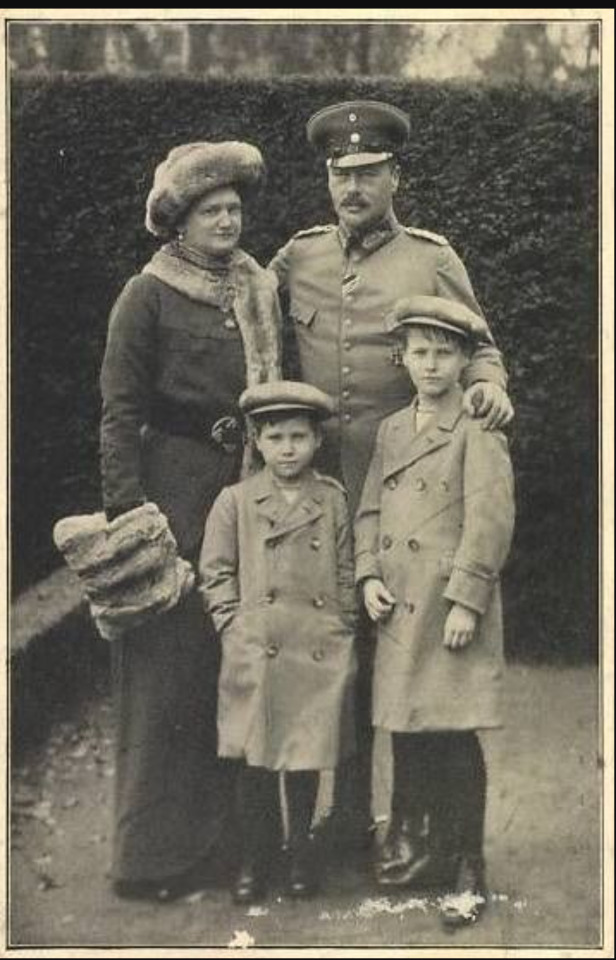
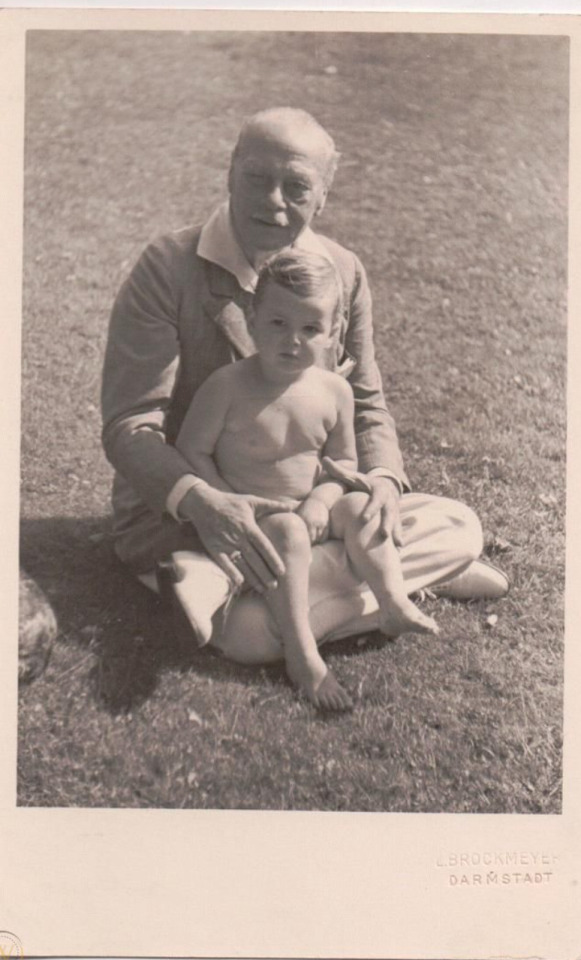
Ernest Louis, Grand Duke of Hesse (1868 - 1937)
Ernst Ludwig was the elder son of Ludwig IV, Grand Duke of Hesse and by Rhine and Princess Alice of the United Kingdom, daughter of Queen Victoria and Prince Albert of Saxe-Coburg and Gotha. He grew up with his four sisters (to whom he was very close) in Darmstadt. His only brother died in 1873 at the age of 3. One of his sisters was Alexandra, Empress of Russia.
He married his cousin Victoria Melita, Princess of Saxe Coburg and Gotha; they had two children, one stillborn boy and a beautiful girl, Elizabeth (Ella), who died of typhoid fever. The couple divorced after her death, and Ernest then married Princess Eleonore of Solms-Hohensolms-Lich (nicknamed Onor by the family). The union produced two children: Louis, Prince of Hesse and By Rhine, and George Donatus, Hereditary Grand Duke of Hesse and By Rhine. George Donatus married Princess Cecilie of Greece and Denmark, and older sister of Prince Phillip (sometimes all roads seem to lead to our dear Prince Phillip.)
Photographs: 1. Ernst Ludwig, Onor, and their two children, George Donatus and Louis; 2. An older Ernst Ludwig, with his grandson.
#russian history#imperial russia#romanov family#Empress Alexandra#brother of Empress of Russia#Ernst Ludwig#Princess Eleonore of Solms-Hohensolms-Lich#Grand children of Queen Victoria
8 notes
·
View notes
Text
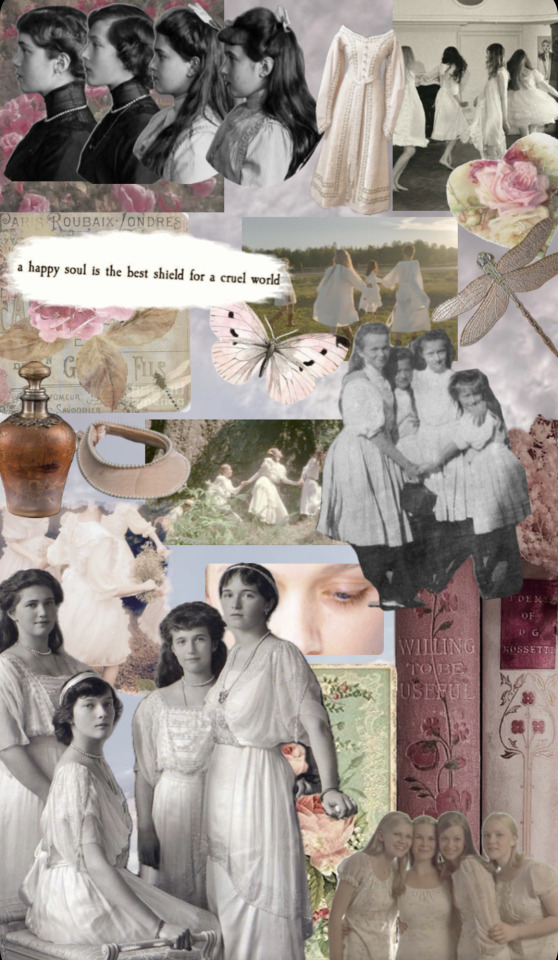
~ ♔ ꧁ OTMA ꧂ ♔ ~
❧ “In the darkness of the mystery which surrounds the fate of these innocent children it is with poignant emotion that I recall them as they appeared, so full of life and joy, in those distant, yet incredibly near, days before the World War and the downfall of Imperial Russia.”
❧ “Olga was perhaps the cleverest of them all, her mind being so quick to grasp ideas, so absorbent of knowledge that she learned almost without application or close study. Her chief characteristics, I should say, were a strong will and a singularly straightfor, ward habit of thought and action.”
❧ “Tatiana was almost a perfect reincarnation of her mother. Taller and slenderer than her sisters, she had the soft, refined features and the gentle, reserved manners of her English ancestry. Kindly and sympathetic of disposition, she displayed towards her younger sisters and her brother such a protecting spirit that they, in fun, nicknamed her "the governess."
❧ “Marie had splendid eyes and rose-red cheeks. She was inclined to be stout and she had rather thick lips which detracted a little from her beauty. Marie had a naturally sweet disposition and a very good mind.”
❧ “Anastasia, a sharp and clever child, was a very monkey for jokes, some of them at times almost too practical for the enjoyment of others. I remember once when the family was in their Polish estate in winter the children were amusing themselves at snowballing. The imp which sometimes seemed to possess Anastasia led her to throw a stone rolled in a snowball straight at her dearly loved sister Tatiana. The missile struck the poor girl fairly in the face with such force that she fell senseless to the ground. The grief and horror of Anastasia lasted for many days and permanently cured her of her worst propensities to practical jokes.”
- Anna Vyrubova (friend and personal confidante of Empress Alexandra Feodorovna)
#💗🤍#OTMA#olga nikolaevna#maria nikolaevna#tatiana nikolaevna#anastasia nikolaevna#romanov#romanovs#my edit#mine#made by me#Romanov edit#russian imperial family#russian history#shuffles#shuffles edit#grand duchesses#grand duchess Olga#grand duchess tatiana#grand duchess maria#grand duchess Anastasia#Anastasia#Anna Vyrubova#diaries and letters#quotes#wallpaper
92 notes
·
View notes
Text
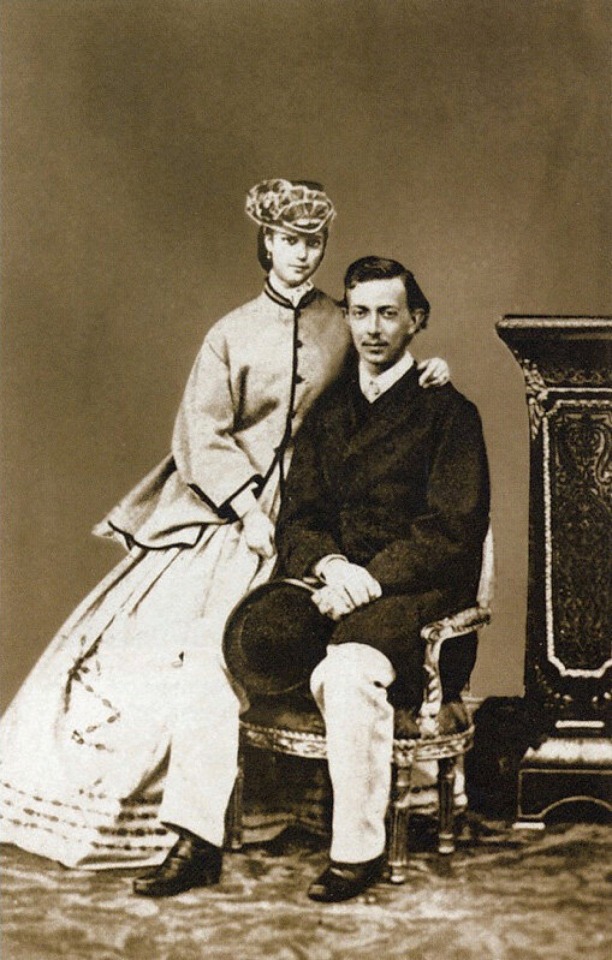
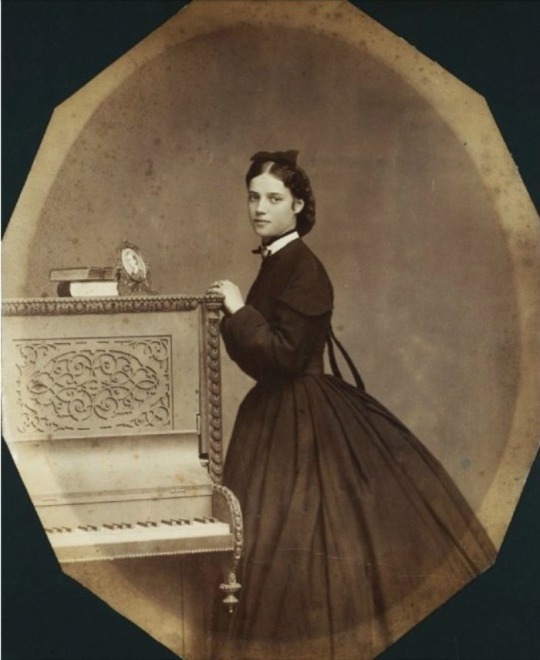
“Your sympathy is a great comfort to me and my daughter, who has endured such a severe trial at such an early age... She tells me that she would not for anything in the world wish to change the past, no matter how short, but happy it was; and I will never forget his look when the Tsar led her by the hand to his bed! It was pure happiness, and he recognized her all day when he was dying. He said goodbye to her, kissed her, and held her hand tightly in his until he died! We were on the road for four days and four nights, and she never left his bedside, kneeling next to him day and night, until at one o'clock in the afternoon she kissed him and he exhaled his young life! It was terrible for me, because I loved him very much and saw how all the happiness of the poor young bride had faded away... Minnie went to Darmstadt for the day to see his parents again. The whole dear family was so kind and sweet to her that the separation was doubly painful for her."
- Queen Louise of Denmark in a letter to Queen Victoria, on her daughter Princess Dagmar’s grief at the death of her fiancé, Grand Duke Nicholas Alexandrovich of Russia. Dagmar went on to become Empress Maria Alexandrovna as the wife of Nicholas’s brother, Emperor Alexander III. Their firstborn son was named after the uncle he never knew, he is known to history as Nicholas II, the last Russian emperor.
#queen louise of denmark#queen victoria of the united kingdom#empress maria feodorovna#grand duke nicholas alexandrovich#romanov#russia#quotes
69 notes
·
View notes
Text
Shortly before the Romanov Tercentenary celebrations in February 1913, Grand Duchess Tatiana Nikolaevna contracted typhoid, and spent much of February and March recovering.


On 21st February 1913 [O.S.] Tatiana wrote after an event in St. Petersburg that she had “a headache the entire time”. By the 24th, she had been confined to bed, and had to be carried by soldiers when the family returned to Tsarskoe Selo. From there, she was quarantined with Alexandra Tegleva, her nursemaid. Tatiana’s big sister, Olga Nikolaevna, wrote daily in her diary about Tatiana’s health, including her temperature, symptoms, and time they spent together.
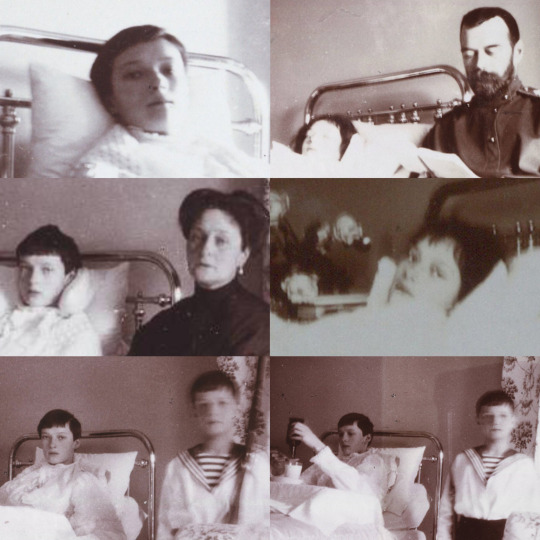
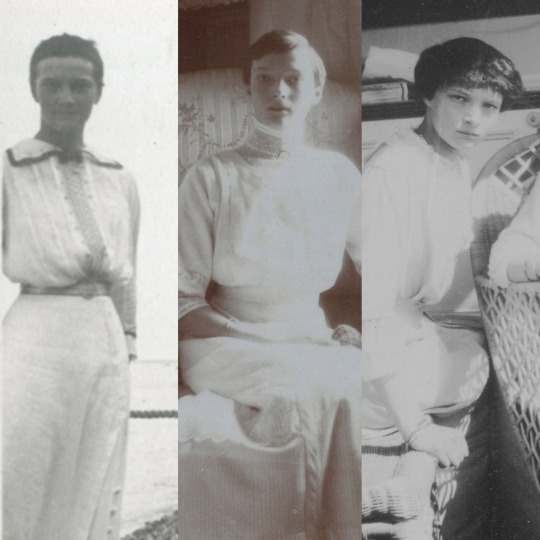
A common treatment after illness was to shave the head, as hair tended to fall out following a serious illness. On 5 March [O.S], Olga wrote in her diary that she sat with Tatiana, “who had her hair cut short.“

Tatiana wore a wig until December 1913, when Alexandra wrote to her brother and sister-in-law that “Tatiana’s hair has grown nice and thick, which means she no longer needs to wear a wig.” Some have claimed that Tatiana was embarrassed about her cropped hair, but the Grand Duchesses’ photograph albums illustrate a different view, that she was comfortable removing her wig around family, friends, and officers, as shown in these photos (see the first photograph of Tatiana taking off her wig on the Standart whilst on holiday in 1913).
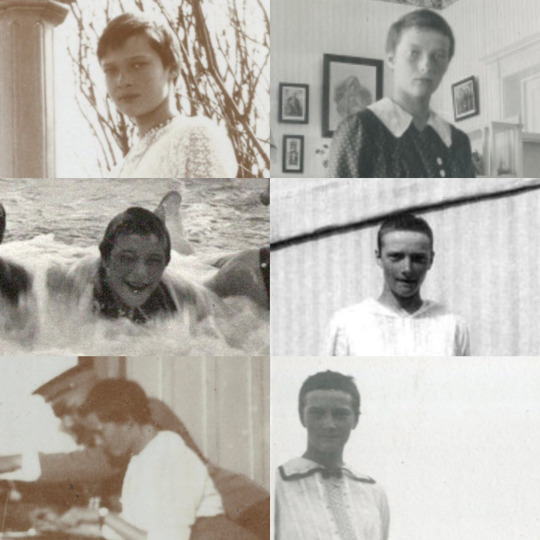
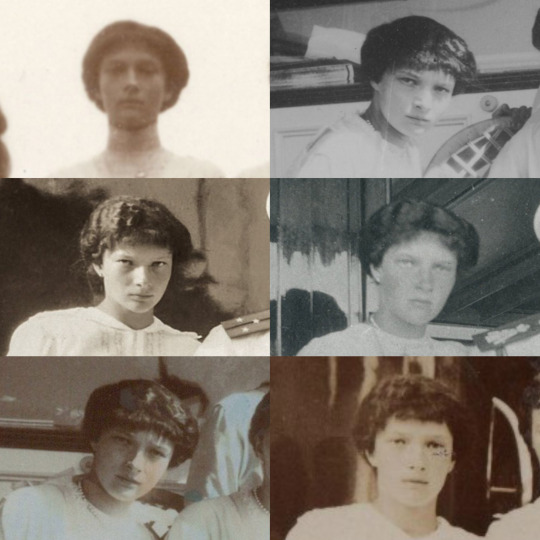
On 26 March 1913 [O.S.], Tatiana wrote in her diary “Could not write because got sick with Typhoid and they [doctors] forbade me to write.” By April, she had fully recovered in time for the Tercentenary.


Sources:
Journal of a Russian Grand Duchess: Complete Annotated 1913 Diary of Olga Romanov - H. Azar
Tatiana Romanov, Daughter of the Last Tsar: Diaries and Letters, 1913–1918 - H. Azar, N. B. A. Nicholson
The Correspondence Of The Empress Alexandra Of Russia With Ernst Ludwig And Eleonore - P. H. Kleinpenning
#Tatiana Nikolaevna#Tatiana Romanov#Olga Nikolaevna#Olga Romanov#Alexandra Feodorovna#Romanov sisters#women's history#Royal history#hair history#my own#1913#Romanov Tercentenary#diaries#letters#sources
64 notes
·
View notes
Text
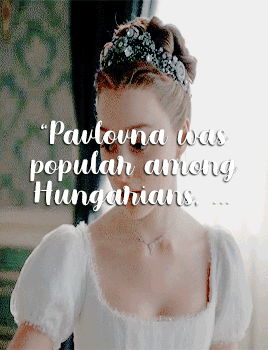
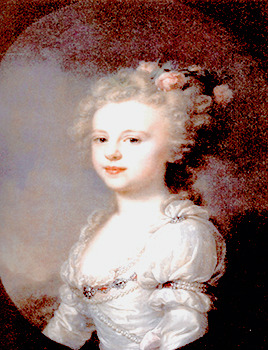
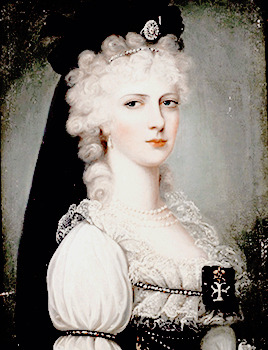

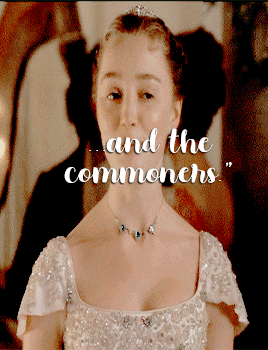
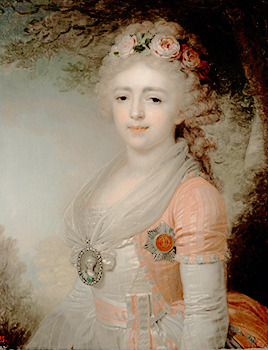
"In 1799, three years after her failed betrothal with the King of Sweden, another marital project originated for Alexandra. Previously in 1798, Dukes Ferdinand Augustus and Alexander Frederick of Württemberg who were the brothers of the Empress Maria Feodorovna, arrived in St. Petersburg to serve in the Russian army. They expressed the interest of Austria to join with Russia in a coalition against the rising power of the French Republic and Napoleon, and to cement this alliance, it was decided to arrange a marriage between Alexandra and Archduke Joseph of Austria, Palatine (Governor) of Hungary and a younger brother of Francis II, Holy Roman Emperor. Archduke Joseph personally came to Russia to see his bride. The meeting between them was successful. In mid-February 1799 the betrothal ball was held. Later, a marriage contract was signed in which Alexandra would be allowed to kept her Russian Orthodox faith. In October, Count Fyodor Rostopchin wrote:
"Believe me, that's not good started to strengthen the alliance with the Austrian court by ties of blood... Of all the sisters she will be given the least successful marriage. She will have nothing to wait for, and her children even more so."
On 25 September 1799, a decree was published about the royal title of Alexandra. In Russia, she was referred to as "Her Imperial Highness Grand Duchess the Archduchess of Austria" with the French prefix of "Palatine d'Hongrie". The wedding took place on 30 October 1799 at Gatchina Palace, one week after the wedding of her sister Elena. To celebrate both events, poet Gavrila Derzhavin wrote the ode "the wedding celebrations of 1799". On 21 November the couple went to Austria. Countess Varvara Golovina remembered that Alexandra was sad to leave Russia, and her father Emperor Paul I "constantly repeated, would not see her since her sacrifice." According to Alexandra's confessor, Andrei Samborski, Alexandra was given a cold reception in Vienna. However, other sources offer a different view. Queen Maria Carolina of Naples (the Emperor's mother-in-law) and her daughters arrived in Vienna in August 1800 for a long stay. Maria Carolina's daughter, Princess Maria Amalia of Naples, wrote in her journal that on 15 August the Queen and her daughters were introduced to Alexandra, whom she described as "very beautiful". Maria Amalia and Alexandra became friends during this time; and the Princess of Naples wrote in her journal that the Russian Grand Duchess and her husband had a friendly relationship with the rest of the imperial family and took part in the family gatherings, parties and balls in Vienna, which contrasts with the version given by Andrei Samborski. For instance, in January 1801, Maria Amalia wrote in her journal that the imperial family used to attend balls in Archduke Joseph's residence in Vienna, where "beautiful Alexandra, always serious and sad, has a magnificent household." When she was presented to Emperor Francis II, she reminded him of his first wife Elisabeth of Württemberg, who was her maternal aunt; this caused the jealousy of Empress Maria Theresa, Francis II's second wife, who also was envious of Alexandra's beauty and fine jewelry. Imperial confessor Andrew Samborski wrote:
"Remembering the happy cohabitation with her led him (the Emperor) in extreme confusion of mind which afflicted the heart of the Empress, his present wife. After this, she became in the innocent victim of the Empress' implacable vengeance...The Empress not forgotten and humiliated her parents and siblings when she called them a family of freaks, due to the treatment that Grand Duke Constantine gave to his wife."
Once, Alexandra turned up to a ball beautifully dressed, with magnificent jewellery. The Empress was incensed at being upstaged by the Archduchess, and ordered her to remove her jewellery, and also told her that she could no longer wear them. Heeding her instructions, Alexandra only decorated her hair with flowers when she attended a play some time later. The flowers highlighted her beauty, leading her to be applauded and being given a standing ovation, making Maria Theresa even more furious. Archduke Joseph could not protect his wife from these attacks. Furthermore, her Eastern Orthodox faith aroused the hostility of the Roman Catholic Austrian court, who urged her to convert. Pavlovna was popular among Hungarians, both the nobles and the commoners. According to the legend, it was her suggestion to add the color green as the third color to the flag of Hungary. Hungarians had been using red and silver, then red and green as their national colors for centuries at the time. However, in the late 18th century, a third color was proposed to be added to the flag, to follow the style of the French tricolor. Pavlovna suggested green as a symbol for hope. By the mid-19th century, the red-white-green Hungarian tricolor became widespread.
Wikipedia of Grand Duchess Alexandra Pavlovna.
81 notes
·
View notes
Text
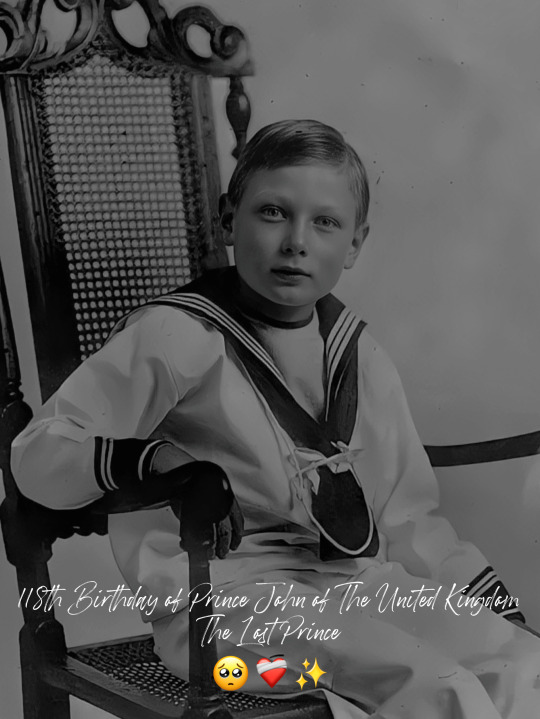
118 years ago on this day, Prince John of the United Kingdom, the youngest child of King George V and Queen Mary was born!
He was named after his paternal uncle, Prince Alexander John, who died in infancy. John was said to be a bright, vibrant, healthy child in the first four years of his life. He was very cheeky and loved practical jokes, such as reportedly putting glue on door handles, and once famously referred to his father as the “ugly old man.”
Above all, Prince John was part of an incredible royal dynasty. He was related to 20 reigning monarchs in Europe; his grandfather was King Edward VII, who reigned over an empire that was at its most powerful.
But life wasn’t exactly easy for John and his siblings as they grew up under the incredibly strict guidance of their father, the future King George V, who was said to have put enormous pressure on his children to behave more like adults than children.
“Lord Darby had a famous anecdote, that George V said to him ‘I was frightened of my father and I’m doing to make damn sure my children are frightened of me.’”
Prince John's grandaunt the Dowager Empress of Russia wrote to her son Tsar Nicholas II that "George's children are very nice ... The little ones, George and Johnny are both charming and very amusing ..."
In 1909, John began having seizures and was discovered to have epilepsy. When his condition deteriorated, he was kept away from the public eye and sent to live at Sandringham House, under the care of his nanny and governess, Charlotte Bill, known by the children as “Lala.” Apparently, all the children adored Lala, who had nursed them all as babies.
In 1916, as his seizures became more frequent and severe, John was sent to live at Wood Farm, with "Lala" Bill having charge of his care. Though he maintained an interest in the world around him and was capable of coherent thought and expression, with his lack of educational progress, the last of his tutors was dismissed and his formal education ended. Physicians warned that he would likely not reach adulthood.
His grandmother Queen Alexandra maintained a garden at Sandringham House especially for him and this became "one of the great pleasures of Prince John's life."
After the summer of 1916, John was rarely seen outside the Sandringham Estate and passed solely into Lala Bill's care. After Queen Alexandra wrote that "Prince John is very proud of his house but is longing for a companion" Queen Mary broke from royal practice by having local children brought in to be playmates for Prince John. One of these was Winifred Thomas, a young girl from Halifax who had been sent to live with her aunt and uncle (who had charge of the royal stables at Sandringham) in hopes her asthma would improve.
John's seizures intensified, and Bill later wrote "we dared not let him be with his brothers and sister, because it upsets them so much, with the attacks getting so bad and coming so often."
He spent Christmas Day 1918 with his family at Sandringham House but was driven back to Wood Farm at night.
On 18 January 1919, after a severe seizure, John died in his sleep at Wood Farm at 5:30 pm.
Queen Mary wrote to Emily Alcock, an old friend that "for John it is a great relief, as his malady was becoming worse as he grew older, & he has thus been spared much suffering. I cannot say how grateful we feel to God for having taken him in such a peaceful way, he just slept quietly into his heavenly home, no pain no struggle, just peace for the poor little troubled spirit which had been a great anxiety to us for many years, ever since he was four years old"
She went on to add that "the first break in the family circle is hard to bear, but people have been so kind & sympathetic & this has helped us much."
King George described his son's death simply as "the greatest mercy possible"
On 20 January, the Daily Mirror said that "when the Prince John passed away his face bore an angelic smile"
John's funeral was at St Mary Magdalene parish church
the funeral was attended by Sandringham House staff; "every single person on the estate went and stood around the gates and his grave was absolutely covered in flowers."
Queen Alexandra wrote to Queen Mary that "now two darling Johnnies lie side by side"
In her final mention of Prince John in her diary, Queen Mary wrote simply "miss the dear child very much indeed."
Lala Bill always kept a portrait of Prince John above her mantelpiece, together with a letter from him that read "nanny, I love you."
96 notes
·
View notes
Text
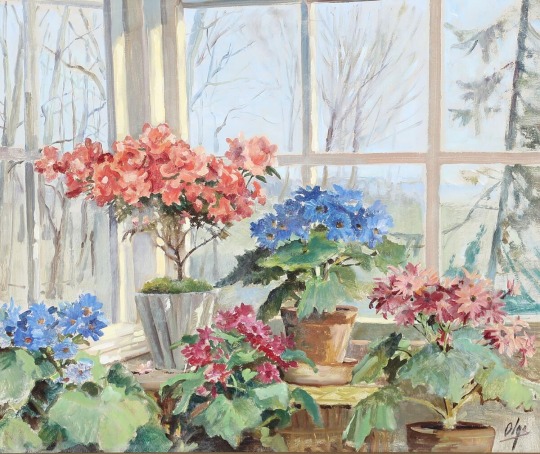
Olga Alexandrovna (Russian, 1882 - 1960) aka Olga Koulikovsky Romanova, Still life with flowers in a sunny window with a view to the garden, s.d.
Private collection
© photo Bruun Rasmussen
Grand Duchess Olga Alexandrovna of Russia was the youngest child of Emperor Alexander III of Russia. Her older brother was Tsar Nicholas II.
She was raised at the Gatchina Palace outside Saint Petersburg. Olga's relationship with her mother, Empress Marie, the daughter of King Christian IX of Denmark, was strained and distant from childhood. In contrast, she and her father were close. He died when she was 12, and her brother Nicholas became emperor.
In 1901, she married Duke Peter Alexandrovich of Oldenburg, who was privately believed by family and friends to be homosexual. Their marriage of 15 years remained unconsummated, and Peter at first refused Olga's request for a divorce. The couple led separate lives and their marriage was eventually annulled by the Emperor in October 1916. The following month Olga married cavalry officer Nikolai Kulikovsky, with whom she had fallen in love several years before.
#Olga Alexandrovna#painting#art#russian#Olga Koulikovsky Romanova#sunny window#garden view#flowers#summer flowers#summer#summer day#Grand Duchess#art nouveau#Grand Duchess Olga Alexandrovna#russian art#russian painting#art history#russian history#flower art#russia#russian royal family#russian royalty#light#hope#spring#romanov#romanovs#romanova
29 notes
·
View notes
Note
Maybe I missed it because you already wrote about it, but what is your view of Catherine I, as a person? She is called The Great which of course alludes to her reign and prestige, but as a person later in life she doesn't strike me as particularly kind, especially to her son. In my view, what I have learned of her so farm is she held onto the throne for so long, rather than give it to her son at some point in his adult life. Wasn't he the rightful heir, considering Catherine herself admitted i writing he was legitimate and her husband's son, not one of her lovers? His first wife died and he grieved and to snap him out of it she told him how she cheated on him? I know he was separated from Catherine from birth but she had the chance to make their relationship count later and she just didn't seem to have understood him, at all, I'm being mild here. And he resented her too, which reflects in his choices when he became Tsar. I just think the succession would have been so much more smooth and thus good for the nation if their mother son relationship wasn't as bad as it was. It wasn't Pavels fault his father didn't have a good marriage to his mother.
I find it extremely tricky to judge a character of these bygone personalities because they are so complex and often have to make decisions none of us could face.
Personally, I think Catherine deserves to be admired for many things. She was ambitious, highly intelligent, passionate, and genuinely wanted to better life for the Russian people and further the country´s progress culturally, scientifically, diplomatically, and of course militarily. And all that, especially the military bit, came at the cost of the suffering of the anonymous crowds we know nothing about. But her achievements were undeniable and her legacy is one of the greatest Russia can boast about now.
She had lofty ideals and was at first very much determined to make them a reality, but even an Empress, especially in Russia at that time, cannot just change everything. Catherine´s power, especially in her early reign, depended on the noble families and she had to keep those on her side, so her ideals of ending the serfdom had to be postponed and were so indefinitely, etc.
Her family life was a mess though, from the very start. Her mother saw her only as a pawn for her own ambitions, eventually leaving Russia in disgrace and without even saying goodbye, Empress Elizabeth liked her in her own strange way, but there was never any closeness or true warmth between the two women. her marriage was an utter disaster and her children were all snatched away from her the moment they were born and she was hardly ever even allowed to see them. Catherine overcame her losses and personal tragedies because she decided to become something more. In fact, had she not decided to seize the power, she may have well been driven out of Russia or even killed herself.
And once her little palace revolt had been completed, she would simply not give up what she gained to her little son for several reasons. Firstly, he truly was just a child, unable to rule anyway. Secondly, after years of humiliation and fear, she was now in the position of being feared and respected. And finally, the Rolov brothers and their forces wanted her on the throne, not Pavel, and she was beholden to them.
I think Catherine grew to dislike and later truly despise her son only when he grew older and as she became an old woman herself, she got that trait of many old people who become more capricious, and selfish and believe their experiences make them, if not omnipotent, definitely better informed and cleverer than anyone else around. And she did things that were deliberately aimed at hurting Pavel, like denying him any responsibilities, instead of giving him some function at court and trying to groom him into an heir. Perhaps the worst thing she did was take away from him his eldest children in the same manner Empress Elizabeth had done to her. And allowing the rumour/information about Pavel´s paternity to simply go around was yet another attempt to hurt him. Personally, I tend to believe Pavel was the son of Peter III, based on the inherited personality traits and recently I have also come across a report that Nicholas II´s DNA tracing led to direct ancestors of Peter III. furthermore, Catherine probably hated Pavel ALSO based on the fact he was, in many ways, like her husband. I imagine had he been as pretty and gallant as her lover Saltykov, it would have been a different story.
Pavel was so very different from Catherine and in opposition to her so vocally, that she was also afraid he would run to the ground everything she had built. And that was simply unthinkable.
Catherine could be generous and caring, but as a woman in a very unique position, a woman who controlled an immense empire and had a say and care about every aspect of it, she had to make (and made) many decisions which naturally we today find cruel, unjust and selfish. To be an effective leader, you cannot rule as an angel, unless your subjects, ministers, family members, and other monarchs, are also angels. What matters most is, eventually, what remains when you are gone.
Catherine had given much to too many people not to be remembered, if not kindly, than with respect. She was not a good mother to her son at all, but she was more successful with her grandsons, and she was especially successful in the role of the mother of the nation.
13 notes
·
View notes
Text
𝗽𝗶𝗰𝗸𝗶𝗻𝗴 𝗳𝗶𝗴𝗵𝘁𝘀
Scenario: “How would America, China, and Canada react to a young superpower wanting to fight them?”

America { Alfred F. Jones } - “Hahah!! You must joking kid! You don’t wanna fight me.”
To put it plainly, America won’t take you seriously and will probably shrug off your “small” threats regardless of if your a superpower or not.
But he still knows better than to keep his eyes away from a potential enemy. [Besides world domination] His main concern is to make sure his citizens are happy and untouched; toiling away with their lives without the threat of war.
You mouth off, then congratulations: your America’s new oil target.
Picking a fight with him personally is one thing, but threatening his people? That’s something he’ll make sure you’ll regret. He ain’t much of a fan in beating down the newer countries, though someone has to teach them a lesson.

China { Yao Wang } - “Aiyah! You younger countries are so insistent for power-aru. You should just be focused on maintaining what you have!”
*Sigh* The younger nations are becoming such a pain. He already has to deal with America and Russia’s antics on a daily basis and now, a new one wants to challenge him to a fight.
Unlike America, China won’t be as willing to throw fists with you. Instead, his diplomatic side will show and speak out to you. Putting all those years of sweet talking emperors and empresses to use, to make you see how worthless it is to go out and ask for trouble towards other countries.
However, if your still persistent in wanting a fight out of him he’ll humor you. Just don’t say he didn’t warn you. Either on the battlefield, or one on one, it’ll be next to impossible to outwit him.
The nation has lived too long, seen too much, to not know the in’s and out’s of combat. Besides, it was a bad choice already to tempt China’s temper.

Canada { Matthew Williams } - “I-I’m sorry, why do you want to fight me? Shouldn’t you ask America for this?”
Okay bro. Out of any country in the world—why do you want to physically quarrel with Canada? He’s like, the most peaceful nation you’re ever going to meet. That’s just inconsiderate. The poor man is already dealing with excessive loneliness and then the only time he does get noticed, is when someone wants to fight him?!
Not to say Canada is completely powerless, but still, he’d much rather have a good conversation with words instead of brawls. So please, don’t let your arrogance force this guy to fight you. Canada may not be as strong as his brother, but he fought in World War 2 for a reason. [He kicked a lot of ass during that time period]
Obviously that era of nation against nation is over for him now, so unless it’s purely in a matter of self-defense he’ll be reluctant to partaking in any sort of violence.
~ I actually wrote this scenario a long time ago, but after re-reading everything, I just realized how scary these guys would be if they were real lmao.
#hetalia#hws hetalia#aph hetalia#hetalia america#hetalia china#yao wang#alfred f. jones#fighting#angst#by ari-burr#hetalia x reader#hetalia america x reader#hetalia china x reader#hetalia canada x reader#matthew williams
198 notes
·
View notes
Text

Empress Alexandra Feodorovna with Queen Alexandra of Great Britain, 1909.
Before being known as Empress of Russia, Alexandra was formally named Princess Alix of Hesse and by Rhine. Her mother, Grand Duchess Alice of Hesse, had ties to the British royal family by her mother, Queen Victoria.
She also had a son named Alfred, who was the Duke of Saxe Coburg and Gotha. He married Grand Duchess Maria Alexandrovna, whose brother Emperor Alexander III would later have a son named Nikolai II that would become Tsar decades later.
#romanov family#olga nikolaevna#tatiana nikolaevna#anastasia nikolaevna#maria nikolaevna#romanovs#history#tsar nicholas ii#empress alexandra feodorovna#alexei nikolaevich#british royal family
17 notes
·
View notes
Text
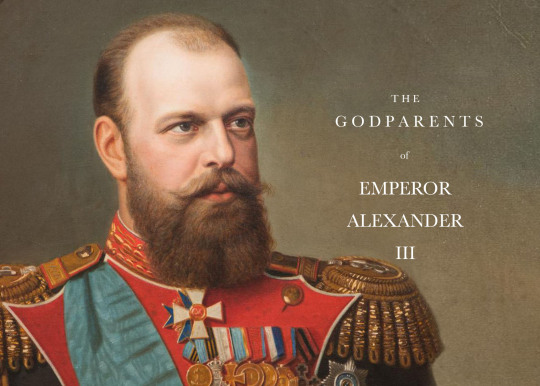

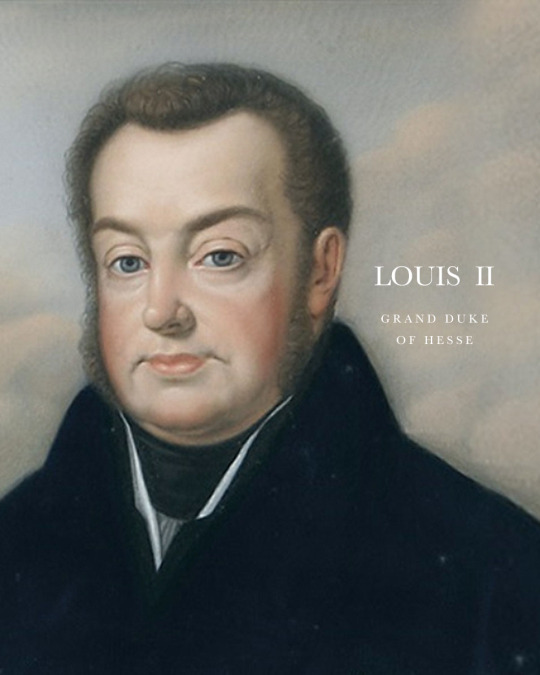

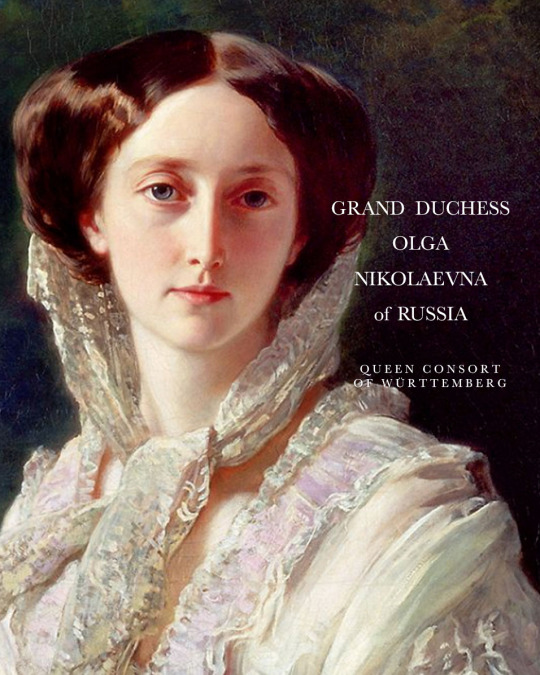
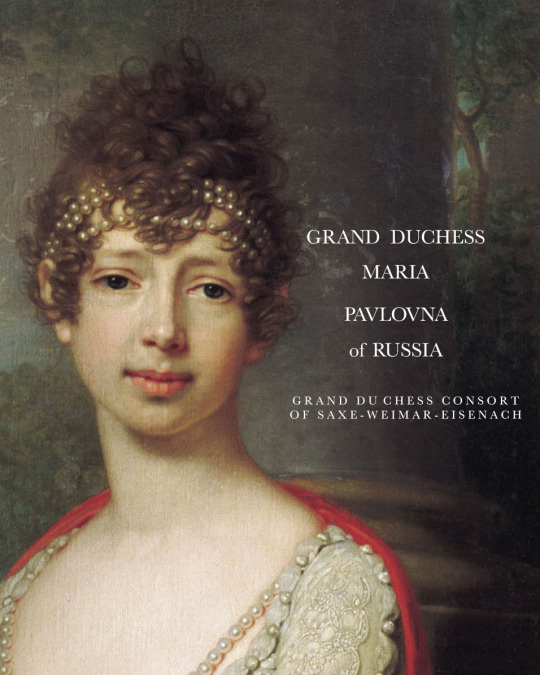

GODPARENTS OF EMPEROR ALEXANDER III
Emperor Alexander III (then Grand Duke) was born as the second son of Emperor Alexander II (then Tsesarevich) on 10 March 1845, during the reign of his grandfather Emperor Nicholas I. He was christened a week later at 10 am in the Winter Palace Church, St. Petersburg, by the Confessor of Their Imperial Highnesses. He had six listed godparents:
NICHOLAS I, EMPEROR OF RUSSIA - his paternal grandfather was one of his godparents present at his christening. Mainly remembered in history as a reactionary whose controversial reign was marked by geographical expansion, centralisation of administrative policies and repression of dissent. He died in 1855, when the Alexander was only 9 years-old, just a week shy from his 10th birthday.
LOUIS II, GRAND DUKE OF HESSE AND BY RHINE - his maternal grandfather was another of his godparents, but was absent at the christening. The hessian grand duke, like his paternal grandfather, was also considered a reactionary leader, he was in conflict with parliament almost his entire reign. The German revolution in 1848-49 proved his inability to govern. On March 5, 1848 he named his son Louis III as co-regent, and a year later he died.
GRAND DUCHESS ELENA PAVLOVNA OF RUSSIA - his great-aunt, the wife of Grand Duke Michael Pavlovich, stood as one of his godparents. Born as Princess Charlotte of Württemberg, she became a close friend of Alexander's mother the Empress Maria Alexandrovna, and was known as an intellectual. She was also considered the most exceptional woman in the imperial family since Catherine the Great.
GRAND DUCHESS OLGA NIKOLAEVNA OF RUSSIA, QUEEN CONSORT OF WÜRTTEMBERG - his aunt was one of his godparents present at the christening. She was the younger sister of his father. Attractive, cultured and intelligent, she was considered to be one of the most eligible princesses in Europe. Just three years after her nephew was born, in 1846, she married Crown Prince Karl of Württemberg. Alexander's older brother the heir apparent Nicholas died just two months before their aunt Queen consort of Württemberg. With his death, he became the next heir apparent, the 'Tsesarevich'.
GRAND DUCHESS MARIA PAVLOVNA OF RUSSIA, GRAND DUCHESS CONSORT OF SAXE-WEIMAR-EISENACH - his great-aunt was another of his godparents. One of the daughters of Emperor Paul I, the grand duchess married a German prince Karl Friedrich, Grand Duke of Saxe-Weimar-Eisenach in 1804. She was an intellect, interested in both arts and sciences. German poet and novelist Johann Wolfgang von Goethe hailed her as one of the worthiest women of his time. She was the great-grandmother of Wilhelm II, German Emperor and Queen Victoria of Sweden.
PRINCESS MATHILDE CAROLINE OF BAVARIA, GRAND DUCHESS OF HESSE AND BY RHINE - his aunt, the wife of his uncle Louis III, Grand Duke of Hesse and by Rhine, was listed as one of the future emperor's godparents. She was the eldest daughter of King Ludwig I of Bavaria. Her marriage to Louis III was childless. She died of cancer in 1862 at the age of 48.
Source
32 notes
·
View notes
Text

Emperor Nicholas I (1796 - 1855) and Empress Alexandra Feodorovna (1798 -1860 - nee Princess Friederike Luise Charlotte Wilhelmine of Prussia
Nicholas I, the Iron Tzar, and his sons
This couple was the first “Nicholas and Alexandra” in the Romanov Dynasty. They were Nicholas II's great grant-parents.
It was said that he was the best-looking man in Europe. She was tall and fair and enjoyed jewels, gowns, and balls. They loved each other, and their union was not unhappy, but he did not remain faithful to her (after he died, his last mistress was employed as Alexandra’s lectrice, and they became friends.) Nicholas and Alexandra had seven children, four sons, and three daughters. Those four sons would ensure that the generation of Romanovs following them would not want for male heirs. As a matter of fact, there would be too many Grand Dukes, making it necessary for his grandson, Alexander III, to change the Pauline laws, re-defining who would be considered a Grand Duke or Duchess, among other things (only grandsons/grandaughters of a Tzar would be Grand Duke/Duchesses; great-grandsons and so on would be Princes and Princesses of the blood).

Nicholas I with his four sons: Tsarevich Alexander Nikolayevich (1818 - 1881 - future Alexander II), Grand Duke Konstantin Nikolayevich (1827 - 1882), Grand Duke Nikolay Nikolayevich (1831 - 1891), and Grand Duke Mikhail Nikolayevich (1832- 1909.)
According to the literature, Nicholas raised his two elder sons very strictly but had more of a paternal relationship with the younger two. His priority was to bring them up so that they were true soldiers and so that when Alexander inherited the throne, the other three would help and support him. And they did. Nicholas I adored his daughters and was devastated when his youngest daughter Alexandra (better known as Adini), died. (His daughters would be discussed in another post.)
Below are the sons of Nicholas I and their spouses:
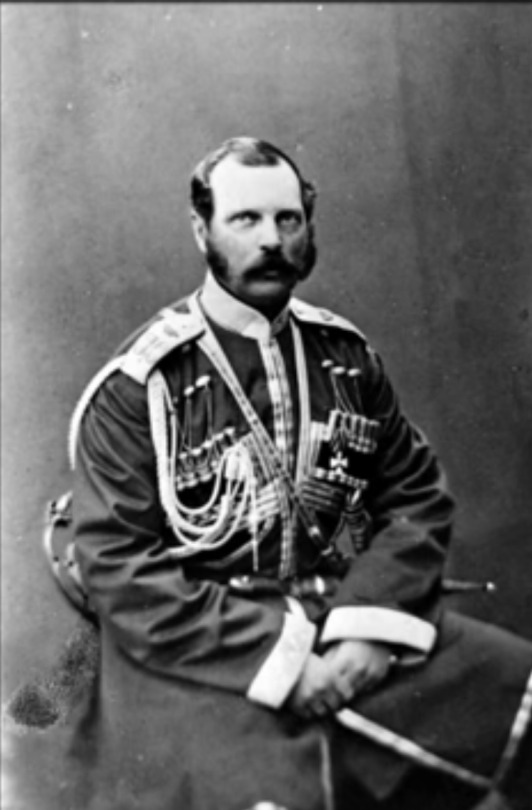
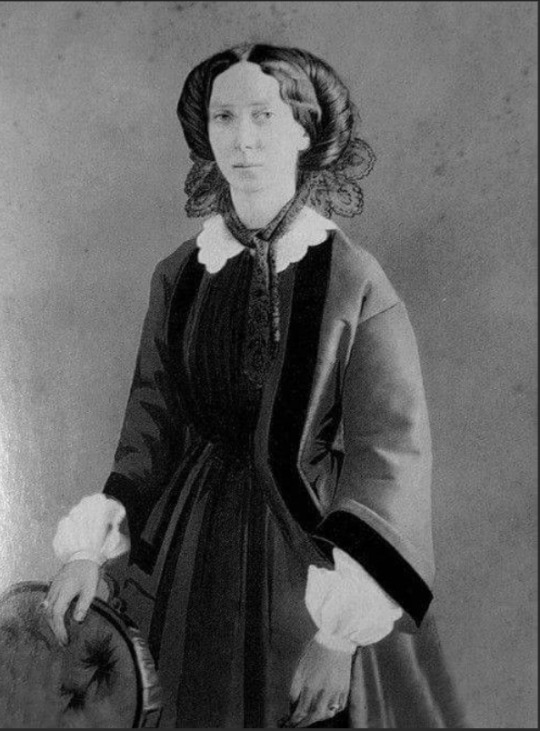
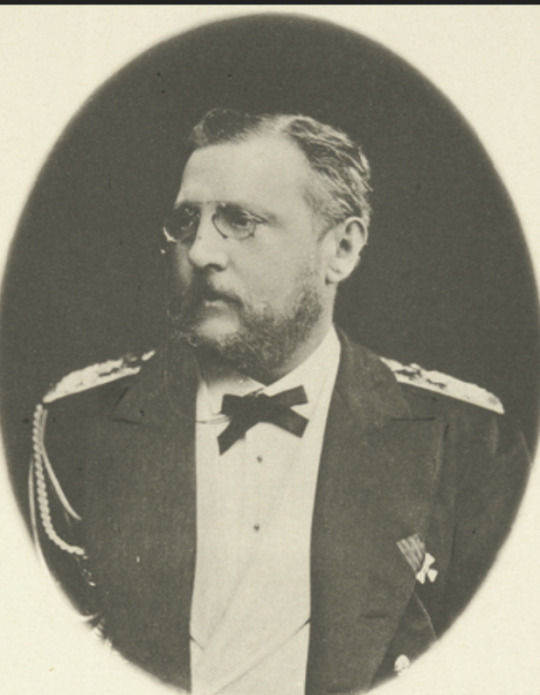
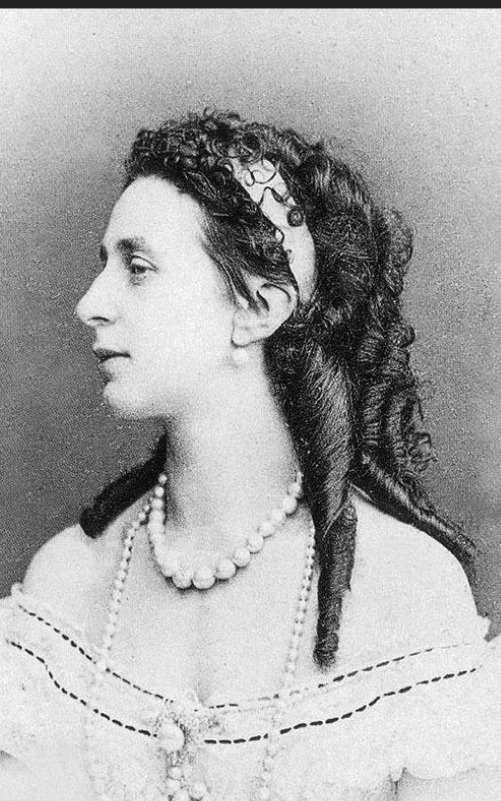

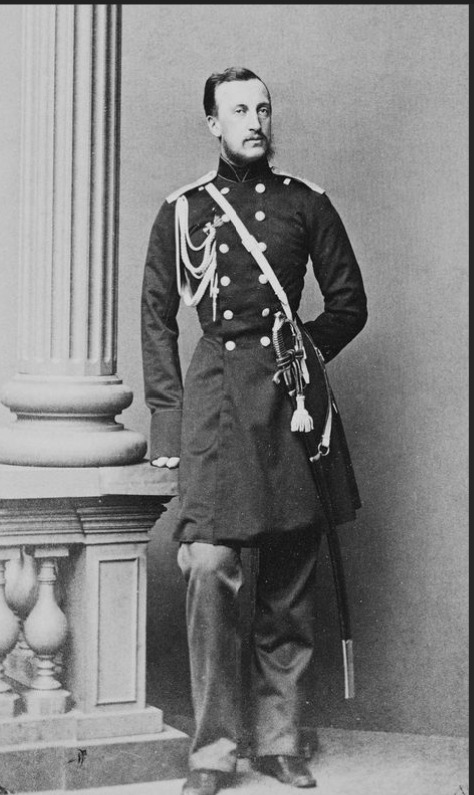

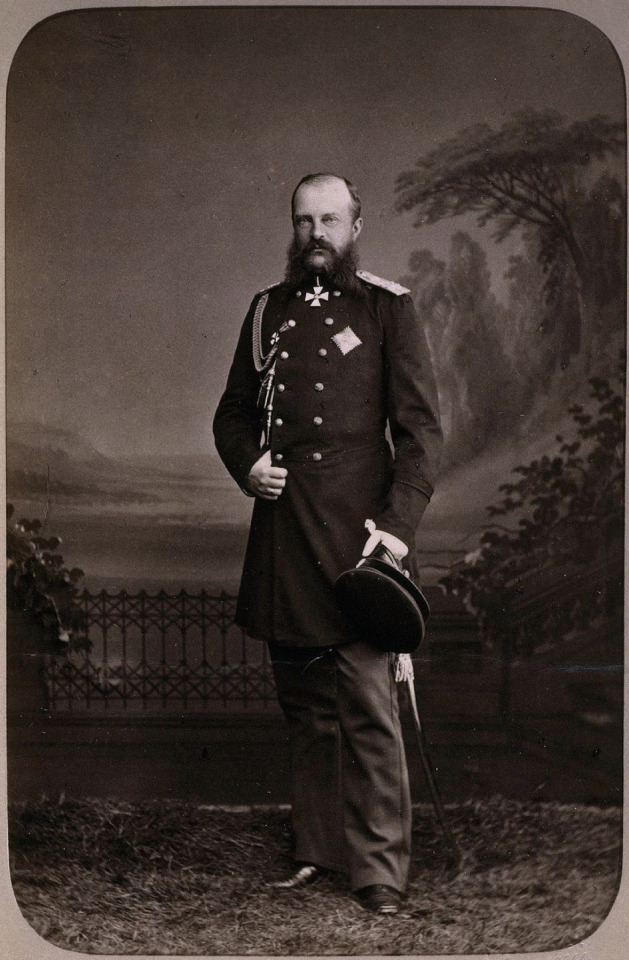
1. Emperor Alexander II and his first wife Empress Maria Alexandrovna (born Princess Wilhemine Marie of Hesse); Issue listed below (Only legitimate issue surviving to adulthood listed; not in birth order)
Grand Duchess Marie
Grand Duke Nicholas Alexandrovich
Alexander III
Grand Duke Vladimir
Grand Duke Alexei
Grand Duke Sergei
Grand Duke Pavel
2. Grand Duke Konstantin Nikolayevich and Grand Duchess Alexandra Iosifovna (Princess Alexandra of Saxe Altenburg); Issue listed below (Only legitimate issue surviving to adulthood listed; not in birth order) - They would be known as the "Konstantinovichi"
Grand Duke Nicholas
Grand Duke Konstantin
Grand Duke Dmitry
Grand Duke Vyacheslav
Grand Duchess Olga
Grand Duchess Vera
3. Grand Duke Nikolay Nikolayevich (the Elder) and Grand Duchess Alexandra Petrovna of Russia, born Duchess Alexandra Frederica Wilhelmina of Oldenburg. Issue listed below (Only legitimate issue surviving to adulthood listed; not in birth order); Known as the "Nikolayvichi”
Grand Duke Nicholas Nikolayevich
Grand Duke Peter Nikolayevich
4. Grand Duke Mikhail Nikolayevich and Grand Duchess Olga Feodorovna (nee Princess Cecilie of Baden) Issue listed below (Only legitimate issue surviving to adulthood listed; not in birth order) They were known as the "Mikhailovichi" (although they preferred to be called the "Michels;" the family called them the "Wild Caucasians" because they grew up in the Caucus and had strong opinions that they voiced loudly)
Grand Duchess Anastasia Mikhailovna
Grand Duke Nicholas Mikhailovich
Grand Duke Mikhail
Grand Duke George
Grand Duke Alexander
Grand Duke Sergei
Grand Duke Alexei
The children and grandchildren of these couples would be directly involved in one way or the other in the Great War, the Russian Revolution, the Civil War in Russia, and the overthrow of the monarchy and the Romanov Dynasty. Some would lose their lives, others would lose children, brothers, and spouses, and all would lose their country, status, and privileges.
#russian history#romanov dynasty#imperial russia#Emperor Nicholas I#Emperor Alexander II#Grand Duke Konstantin Nikolayevich#Grand Duchess Alexandra Iosifovna#Grand Duke Nikolay Nikolayevich#Grand Duchess Alexandra Petrovna of Russia#Grand Duke Mikhail Nikolaevich#Grand Duchess Olga Feodorovna#vintage photography
90 notes
·
View notes
Text

"The great day came. It was April 16, the eve of Sasha's twenty-third birthday. In the morning there was mass, at one o'clock in the afternoon the official ceremony of dressing the bride in the presence of the whole family, newly appointed court ladies and three ladies-in-waiting. Marie was coiffed so that two long curls fell on either side of her face, a small diadem of diamonds and pearl pendants was placed on her head - under it was attached a veil of lace, which hung below the shoulders. Each of us sisters gave her a pin to attach it, and then a purple ermine-trimmed robe, so heavy that five chamberlains had to hold it, was placed over her and fastened at the shoulder with a gold pin. At the end, Mama also attached a small bouquet of myrtle and orange blossom under the veil. Marie looked grand and majestic in her outfit, and the expression of solemn seriousness on her childish face was in perfect harmony with the beauty of her figure. At three o'clock there was a solemn banquet, approximately four hundred people were seated in the Nicholas Hall of the Winter Palace at three huge tables. In the middle are the Royal Family and the clergy, who opened the banquet with prayer and blessing. At the table, ladies sat on the right hand, gentlemen on the left. They drank the health of the young couple, Their Majesties, the Tsarevna's Parents, as well as all loyal subjects, and each toast was accompanied by cannon salvoes. The highest ranks of the Court brought champagne to Their Majesties; we, the other members of the Royal Family, were served by our chamberlains. A military band played, and the best singers of the Opera sang so that the walls shook. At eight there was a polonaise in the St. George's Hall: Papa danced in front of everyone with Marie; at ten o'clock we returned to our chambers, here only the family dined with the newlyweds. Adini and I did not take part in this, but had dinner with our teachers in my rooms and looked out at the Neva, at the illuminated embankment, ships decorated with flags, a festive crowd, and behind it the spire of the Peter and Paul Fortress, rising to the sky, still gilded by the setting sun… this day ended with such a wonderful note.”
- Grand Duchess Olga Nikolaevna, Queen of Wurttemberg, on the nuptials of her elder brother, the future Emperor Alexander II of Russia and Empress Maria Alexandrovna (nee Princess Marie of Hesse-Darmstadt.)
#grand duchess olga nikolaevna the elder#emperor alexander ii#empress maria alexandrovna#romanov#russia#quotes
58 notes
·
View notes
Text

On April 24, 1865 Tsesarevich Nicholas died. Eldest son of Tsar Alexander II and older brother of Tsar Alexander III, who was supposed to be Nicholas II..
In 1860, during the races in Tsarskoye Selo, Niksa fell from his horse and received a severe bruise in his back. But not wanting to seem weak and pampered, he says that he does not hurt at all. No one knows that this episode will be fatal in the fate of the young heir to the throne.
Time passes, but the pain in the back doesn’t go away and only intensifies every day. Dr. Shestov, assigned to the heir, assures that this is just rheumatism, not paying attention to the abscess on the back at the site of the bruise. Niksa is treated with baths, warming, massages and straightening, the pain from which is so strong that the heir screams and cries.
The prescribed treatment gave no improvement and Niksa suffered from headaches, weakness and back pain, Everyone seems to see Nicholas' deteriorating condition except his father, Alexander II who is sure this is just rheumatism, and his son is simply exaggerating his pain.
There was no remedy in the spas of Europe, and after participating in the Berlin maneuvers of 1864, in which Nikolai had to ride a horse, he could no longer move independently and straighten his back.
The last home of the heir was a villa in Nice, where he is being moved on the advice of European doctors. Even a board of eminent physicians find it difficult to diagnose Nexa, only when he appeared to vomit. Doctors finally make the correct diagnosis “tuberculous meningitis”.
Niksa died at the age of 21, after four hours of pain. He passed away and was surrounded at that moment by his parents, brothers, and his bride, the Danish Princess Dagmar, who didn’t leave him until his last breath.
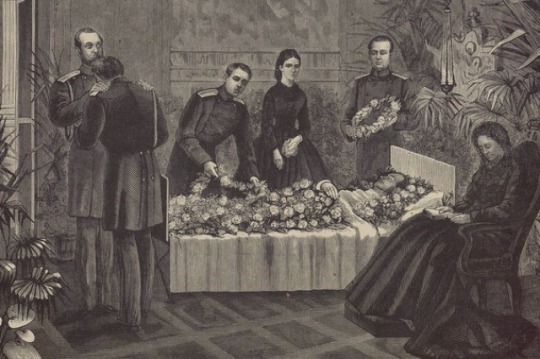
The death of the beloved Tsesarevich becomes a tragedy not only for the dynasty, but for the whole country, which passionately loved the heir to the throne.
After the death of Niska, his younger brother, Grand Duke Alexander, became Tsesarevich, and the next emperor of the Russian Empire will be Alexander III, and he will be the husband of the Danish princess Dagmar, who will be Empress Maria Feodorovna.
Alexander III will name his first son Nicholas, in honor of his beloved brother. It is this son who will become Emperor Nicholas II - the last Russian emperor.
It is difficult to say whether Nicholas Alexandrovich's life could have been longer and happier if he had been diagnosed in time and received adequate treatment. This disease was not really studied at that time, moreover, it was a very rare disease.
“Nicholas had a great future, and he was probably going to be the most educated monarch not only in Russia but also in Europe.” -Boris Chicherin

Dear Niksa on his deathbed.

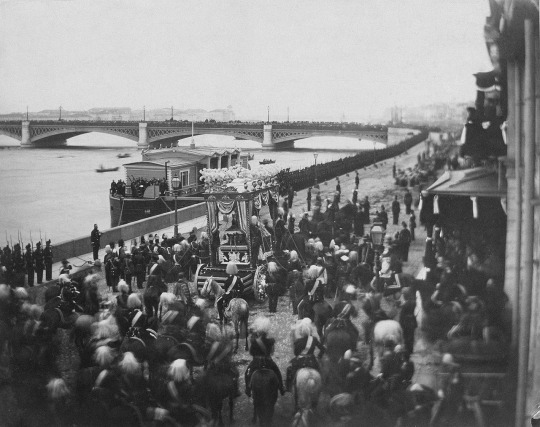
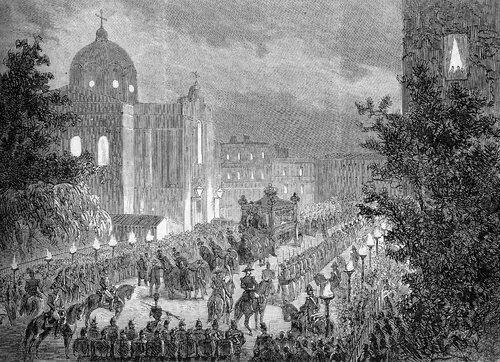
#tsesarevich nicholas#Nicholas alexandrovich#Alexander ii#alexander iii#empress maria feodorovna#1860s#1865#romanovs#russian empire
38 notes
·
View notes
Text

King Christian IX of Denmark had three daughters:
Princess Alexandra of Denmark (later Queen of United Kingdom) was born in 1 December 1844
Princess Dagmar of Denmark (later Empress of Russia) was born in 26 November 1847
Princess Thyra of Denmark (later Crown Princess of Hanover) was born in 29 September 1853
Princess Alexandra was a personality of an uncommon order. The gracious lady was graciousness itself. She was distinguished, not by any desire to enter into public affairs, but by a kindliness, a generosity, a sympathy with all classes, poor and rich, which endeared her to the whole people.Alexandra shared a draughty attic bedroom with her sister, Dagmar, made her own clothes, and waited at table along with her sisters. Alexandra and Dagmar were given swimming lessons by the Swedish pioneer of women's swimming, Nancy Edberg. At the age of 19 Alexandra married Prince Edward of Wales, the eldest son of queen victoria and Heir of Great Britain throne, Edward loved his wife but was not faithful to his marriage!the result of this marriage was 6 children. 🥰❤️
Dagmar was known for her beauty. Princess Mary Adelaide of Cambridge said that Dagmar was "sweetly pretty" and commented favorably on her "splendid dark eyes." Dagmar was intelligent, When considered Dagmar for queen victoria's second son Alfred, Duke of Saxe-Coburg and Gotha, Queen Victoria judged that "Dagmar is cleverer [than her older sister, Alexandra]... she is a very nice girl." At the age of 19, Dagmar married the Russian Tsesarevich Alexander, after the shocking death of her fiancé Tsesarevich Nicholas, who was Alexander's older brother. The result of their marriage was 6 childrenWhen she married, she didn't know how to speak any Russian. However, within a few years, she mastered the language and was so proficient that her husband, tsar Alexander iii wrote to her in Russian.🥺🤍
Princess Thyra As a child shared a bedroom with her elder sisters, Alexandra and Dagmar, and was taught how to sew and knit her own clothes and socks. Thyra was an attractive and gentle young woman, with dark hair and dark blue eyes, and king Christian and Queen Louise wanted their youngest daughter to make a good marriage as their elder daughters had. Thyra's first suitor was King Willem III of the Netherlands, but as he was thirty-six years older than she was, she rejected him.In her youth, Thyra had fallen in love with Vilhelm Frimann Marcher, a lieutenant in the cavalry, which resulted in a pregnancy. Her brother George I of Greece suggested that she have the baby in Athens to avoid scandal; the Danish press was told Thyra had been taken ill with jaundice. At the age of 25, Thyra married Ernest Augustus, Crown Prince of Hanover, and the result of this marriage was 6 children.🤩💗
32 notes
·
View notes
Text
"if I'm murdered by nobles and your relatives and if they shed my blood, none of your family, that is to say, none of your children or relations will remain alive for more than two years"
Rasputin to Alexandra Feodorovna
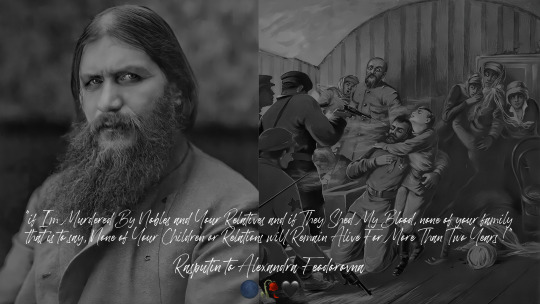
After the murder of Grigori Rasputin in 1916, the most influential priest of the Russian court, by Tsar Nicholas II's relatives,A letter from him to the Russian Empress Alexandra Feodorovna, discovered That was Rasputin's last letter to the Empress, in which he made shocking predictions about his own death and the future of Russia which made him one of the most mysterious people in history:
"I write and leave behind me this letter at St. Petersburg. I feel that I will leave life before January 1st.If I am killed by common assassins, and especially by my brothers the Russian peasants, you, Tsar of Russia, have nothing to fear, remain on your throne and govern, and you, Russian Tsar, will have nothing to fear for your children But *if I am murdered by nobles and your relatives and if they shed my blood, none of your family, that is to say, none of your children or relations will remain alive for more than two years, They will be killed by the Russian people and for twenty-five years there will be no nobles in the country..."
What you read is only a part of the letter and all the things mentioned come true in the coming years...
In 1917, the Bolsheviks came to power and the Romanovs were exiled to Siberia after 300 years of rule.
The revolution that began with the massacre of Bloody Sunday by Tsar Nicholas II on January 22, 1905, ended in 1917 when the Bolsheviks came to power!
and tsar Nicholas with his family and 4 of his crew were shot in July 17, 1918!💔
But after a century, Rasputin's prophecies still continue...💀
#Rasputin#alexandra feodorovna#tsar nicholas ii#Olga nikolaevna#tatiana nikolaevna#maria nikolaevna#anastasia nikolaevna#alexei nikolaevich#romanov dynasty
44 notes
·
View notes